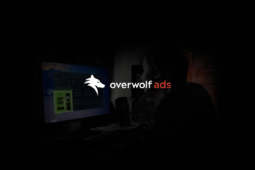AI Killing Search? That’s Too Simplistic
by on 2nd Sep 2025 in News

Kate Ross, co-founder & CEO, eight&four, takes a look at how AI is impacting search - and how it’s rewiring, rather than destroying, search behaviour.
If you work in marketing, your LinkedIn, X, and Reddit threads are probably full of "SEO is dead", "Google is done", "GEO is the future".
AI is absolutely impacting search, but it’s a more nuanced rewiring of search behaviours - not necessarily the end of Google.
GenAI impacts search in two very different places: inside Google - the AI Overviews/AI mode feature appearing on certain Google search queries; and outside Google - behaviour change shifts people to ChatGPT, Perplexity, etc. for search requirements.

It’s an important distinction; AI is changing existing 'search', and it’s also leading users to 'search' differently. Arguably, today, the biggest impact is the first. ChatGPT search volumes remain tiny globally - Google still retains 90+% market share of searches (93% in the UK).
Plus, recent data from SEMRush appears to indicate that regular ChatGPT usage appears to lead to a concurrent increase in Google activity, likely due to a variety of factors - frictionless, conversational search experiences on LLM’s leading to enhanced curiosity/longer search journeys, or fact checking of LLM outputs.
AI Overviews hasn’t destroyed search marketing; but is symptomatic of a broader and significant rewiring of search behaviours.
AI Overviews show on a minority of searches - but change clicks when they do.
- SEM Rush data for March-July shows ~13–18% of Google queries generated an AI summary. When people see one, they click fewer links (8% vs 15% CTR to web results), redistributing traffic.
- The majority of these 'lost clicks' are likely low value to brands – typically informational-led rather than purchasing-led. Reports show declining traffic without equivalent conversion drops. That may change as rollout continues.
Publisher traffic is falling. Multiple studies have reported 25% drops in Google referral traffic due to AI summary interception (with steeper declines for some news orgs). So publishers and brands do need to plan for less 'free' traffic.
- Keep an eye on the publisher fightback - eg, Cloudflare’s 1st July 2025 'Independence Day', blocking many AI bots by default, launching 'pay-to-crawl' and lobbying Google to ensure publishers can block their content being phished for AI Overviews.
For decades people have generated content in order to drive Google traffic. If Google is no longer driving that traffic, content publishers lose economic incentive to create it. And without content, will AI Overviews survive? And what of Google’s paid ads business model? With less Google direct traffic dependence, minds, and budgets will shift from investing in Google’s ecosystem. It’s a critical time to review your search strategy and investment.
Are we being distracted from the bigger shift?
Amid the alarmism, a potentially bigger shift is being obscured: AI isn’t the biggest change in search behaviours, social is. Consumers are "searching" on TikTok, YouTube, Reddit, and Pinterest at pace.
According to WARC, US weekly searchers search twice more frequently on social and video platforms than on AI platforms (30% vs 14%). Gen Zs search TikTok at near-Google levels. YouTube, Pinterest, and Reddit search volumes are meaningfully up year-on-year. This is the quiet story the AI hype obscures.
What should you do?
Optimise for the answer, not just the query. Every brand website key page needs a crisp, source-cited TL;DR that could be lifted into an overview: a 2–4 sentence summary, short bulleted "key facts", comparison tables (LLM’s love these), and a clean FAQ. Link out to sources - LLMs prefer content with citations and stats.
Go entity-first. Make it unambiguous who/what you are online – consistent brand signals are critical. Tighten organisation/product schema, author bios with credentials, and align external profiles (Wikipedia/Wikidata, Crunchbase, G2/Capterra, LinkedIn). Ambiguity is the enemy of LLM inclusion.
Feed the sources LLMs love. Wikipedia, YouTube, and Reddit are disproportionately cited in AI summaries - likely due to simple schema and Q&A orientation. Invest in high-quality YouTube explainers and show up authentically on Q&A forums like Reddit (tread carefully in community-owned spaces).
Social SEO = critical discovery. Treat TikTok/YouTube/Instagram as search surfaces. Optimise titles/descriptions as natural-language "search" questions. Use creators for social proof - audiences are more likely to trust claims via creators than brands.
Local + product data hygiene. Keep business profiles, product feeds, availability, and pricing pristine. AI summaries increasingly pull from structured local/product sources; sloppy feeds = you get skipped.
Earn mentions, not just links. Early correlation work suggests brand mentions across the wider web correlate more with AI Overview inclusion than classic link metrics. PR, podcasts, conference recaps, and quoted stats matter more than ever. (Correlation ≠ causation, but the direction of travel is clear.)
Measure reality, not theatre. Most "AI visibility" tools can’t see real prompts, rely on synthetic prompt sets, and results vary by model, memory, and query fan-out (how AI explodes a question into sub-queries). Treat any single-number "AI rank" as snakeoil. Build a GA4 view for LLM referrals and annotate when Overviews appear for priority topics. Track brand inclusion in overviews, not "rank". Validate with clickstream/market panels when stakes are high.
Control who crawls you (strategically). Decide which AI crawlers you allow, which you meter, and which you block. Cloudflare’s "pay-per-crawl" and bot management make monetisation/controls real. Expect platform-level toggles from Google to block Overviews without losing indexing.
Diversify demand capture. Your channel mix should assume fewer organic clicks from Google when AIO fully kicks in. Shift some effort to creator collabs, email, community, and direct. WARC puts search at ~22% of media budgets - but a growing slice of search behaviour now happens outside classic engines. Plan accordingly.
In the spirit of the piece, an overview:
- Yes, AI Overviews are changing behaviour. They’re still a minority of queries, but they meaningfully reshape click-through when they appear. Build for that reality.
- Google is keeping pace. Don’t bet on its demise, bet on a more blended, answer-forward search experience across Google and social/video surfaces.
- Social is non-negotiable. Treat TikTok/YouTube/Reddit as core search channels, increase investment here.








Follow ExchangeWire